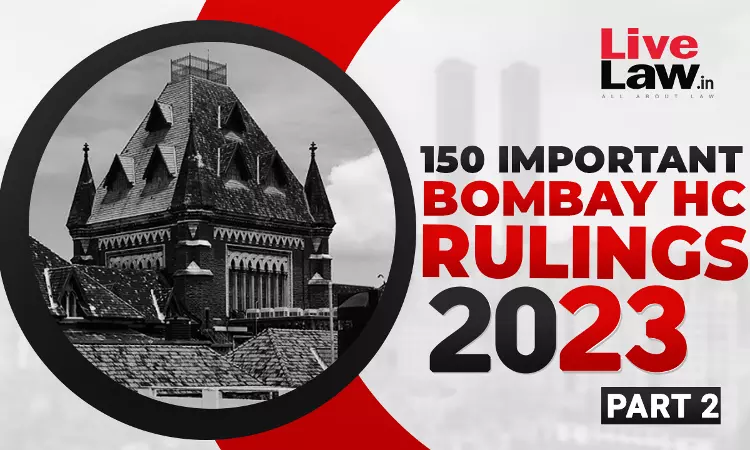150 Important Rulings Of Bombay High Court In 2023: Part II
LIVELAW NEWS NETWORK
23 Jan 2024 1:00 PM IST

Next Story
23 Jan 2024 1:00 PM IST
1. Message Has The Tendency To Play With Emotions Of Different Groups: Bombay High Court Refuses To Quash FIR Against Kashmiri Professor Booked For WhatsApp Status Calling Abrogation Of Article 370 "Black Day For J&K" Case Title: Javed Ahmed Hajam v. State of Maharashtra Citation: 2023 LiveLaw (Bom) 195 The Bombay High Court refused to quash an FIR against a young...
